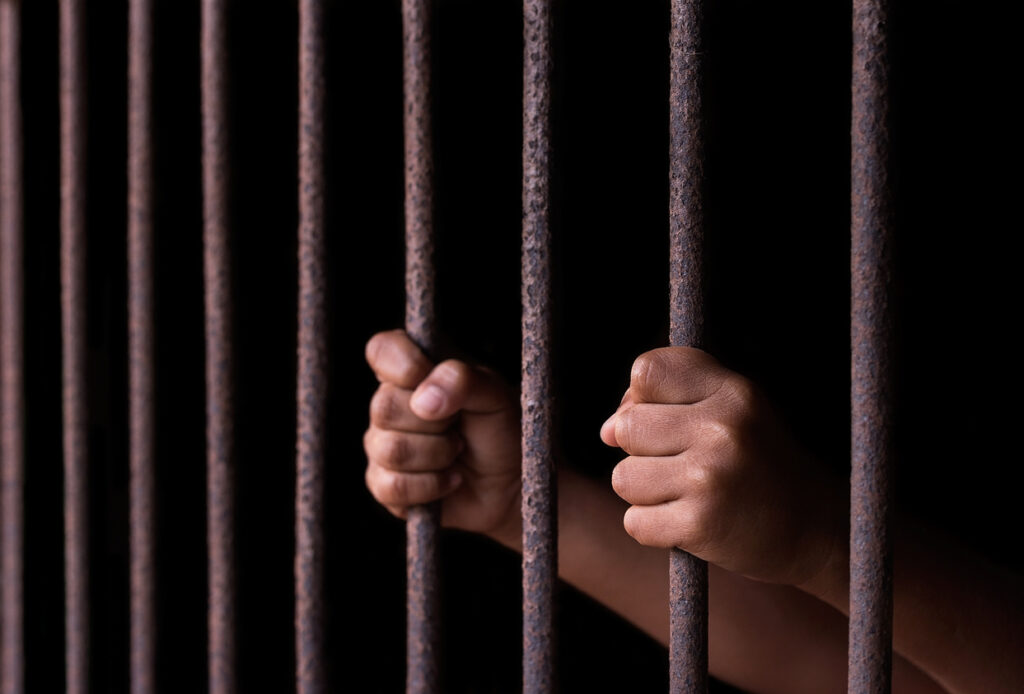Penalties for child pornography in Kentucky are among the state’s most serious criminal consequences, reflecting a determined legislative effort to deter the exploitation of minors. The statutory framework addressing child pornography in Kentucky encompasses both state and federal statutes, each providing specifically for the protection of children and severe consequences for individuals convicted, even for a first-time offense.
In the Kentucky legal system, child pornography is defined in broad terms that include possessing, distributing, receiving, or producing any visual representation, including photographs, videos, or digital images that depict a minor engaging in sexual activities or any sexually explicit conduct. The law strictly prohibits even unwitting possession, and the courts have little tolerance for pleadings of ignorance or accidental discovery. Offenders charged for the first time under these statutes face offenses categorized as felonies, drawing severe attention from law enforcement and prosecutors.
Sentencing Guidelines for First-Time Child Pornography Convictions in Kentucky
Kentucky statute classifies the production, possession, and distribution of child pornography as grave criminal offenses. The penalties for child pornography in Kentucky for first-time offenders can vary depending on the specific nature of the acts involved but remain consistently stringent. If convicted, a first-time offender may still face lengthy incarceration, registration as a sex offender, significant fines, and lifelong consequences even upon release.
Possession of material that fits the legal definition under Kentucky law typically results in Class D felony charges. If the offense involves production or distribution, the charges can escalate to Class C or B felonies, carrying heavier penal weights. The degree of penalty is determined by several aggravating factors including the age of the minor, the number of images, and whether the material was distributed or merely possessed.
Felony Classifications and Their Impact on Sentencing
A primary consideration for anyone facing prosecution is the statutory felony classification. In Kentucky, possessing child pornography is generally classified as a Class D felony for a first offense. This classification may entail a prison sentence ranging from one to five years. Offenders are also subject to mandatory sex offender registration and are commonly placed under supervised probation as part of their sentence.
Aggravating circumstances, such as repeated possession, large volumes of material, or evidence of intent to distribute, may elevate the crime to a Class C felony, carrying a sentencing range of five to ten years under the Kentucky Penal Code. Distribution or production of child pornography—especially cases involving children under twelve—can result in charges being raised to a Class B felony or higher, with sentences that may span ten to twenty years or more, including the possibility of consecutive sentences for multiple counts.
Comparison of State and Federal Statutes on Child Pornography
The interplay between state and federal law carries significant implications for penalties for child pornography in Kentucky. Federal statutes, specifically under 18 U.S.C. § 2252 and 18 U.S.C. § 2252A, stipulate even harsher minimum sentences for receipt, transmission, and production offenses, sometimes superseding state law when interstate activities or digital communications are involved. Federal prosecution can result in mandatory minimum prison terms of five years even for a first conviction and fines that can reach as high as $250,000 per offense.
Kentucky law, while similar in its intentions and definitions, tends to impose minimum penalties based on the precise statutory violation. However, many cases involving electronic transmission or cross-state activities are referred to federal prosecutors, subjecting the defendant to even steeper penalties and additional requirements such as supervised release following imprisonment.
Judicial Discretion and Mandatory Sentencing
Judges in Kentucky are bound by both mandatory sentencing guidelines for specific offenses and discretionary authority based on aggravating and mitigating factors. When determining penalties for child pornography in Kentucky, the courts evaluate not only the statutory minimums, but also any circumstances that could affect the severity of punishment. Factors such as cooperation with law enforcement, absence of previous criminal history, genuine remorse, and willingness to engage in treatment or counseling may influence the outcome, although they rarely result in outright dismissal or insignificant sentencing for first-time offenders.
Kentucky’s judicial standards and corresponding case law reinforce a consistent approach to these laws, rarely diverging from a firm application of statutory penalties and lifetime sex offender registration obligations.

Sex Offender Registration Requirements for First-Time Child Pornography Convictions
A conviction classified under child pornography laws in Kentucky carries the automatic consequence of mandatory enrollment in the Kentucky Sex Offender Registry. Registration is required for all convictions involving child pornography, regardless of intent or whether the conviction arises from possession, distribution, or production. This public registry exposes the defendant’s personal data, location, and nature of the conviction for a minimum of twenty years, and in most cases for life.
Compliance with registry requirements is strictly enforced, and any failure to fulfill registration obligations after a conviction results in additional felony charges and sentencing, compounding the original punishment. This element of penalties for child pornography in Kentucky is widely recognized as the most lasting and socially destructive aspect of a conviction.
Collateral Consequences and Civil Penalties for First-Time Offenders
Civil consequences associated with a criminal conviction in these cases are significant. Besides incarceration and active supervision, individuals are exposed to a range of collateral penalties, including restrictions on residency, prohibitions from employment in any area involving minors, and loss of professional licenses. A conviction also triggers mandatory reporting to professional licensing boards, automatic termination from certain jobs, and ineligibility for government programs or benefits.
These lifelong collateral consequences underline the gravity of a first-time conviction, as the enforcement extends far beyond active prison time or probation.
The Role of Digital Evidence in Child Pornography Convictions
Modern investigations in Kentucky rely heavily on the collection and interpretation of digital evidence. Devices are routinely seized, and forensic examinations are conducted to determine the intent, extent, and distribution of illegal content. Defendants frequently face charges based on evidence recovered from computers, mobile devices, or cloud storage platforms. The use of digital forensics is reinforced by both Kentucky statutes and national procedural standards, ensuring prosecutors can establish both knowledge and intent in court.
For additional official information, the Kentucky Legislature’s portal offers complete access to statutes and legislative definitions governing child pornography crimes. The full text of KRS 531.335 is available on the Kentucky General Assembly website, fulfilling the guideline for a relevant external government source.

The Impact of Possession Versus Production or Distribution
The legal system in Kentucky distinguishes between various acts associated with child pornography, each carrying distinct implications for prosecution and sentencing. While simple possession for first-time offenders may result in a Class D felony, possession with intent to distribute or the act of production substantially increases exposure to harsher sentencing and the risk of federal prosecution. The prosecution’s burden of proof focuses on demonstrable knowledge, possession, and the potential for public dissemination of the images.
The creation of child pornography, even for a first-time offender, results in the most severe penalties under the law and is aggressively pursued by state and federal authorities. Sentencing enhancements often apply for aggravating factors, including but not limited to the age of the depicted child, the method of production, and the volume of material involved.
Sentencing Mitigation and Plea Practices in Kentucky Courts
While cases involving penalties for child pornography in Kentucky are weighted toward custodial sentences, the courts do retain limited authority to grant probation or reduced sentences under exceptional circumstances. First-time offenders who demonstrate a capacity for rehabilitation, have no prior criminal record, and exhibit substantial cooperation may be considered for alternative sentencing such as supervised probation, mandatory therapy, or other court-approved programs, but only in comparatively rare situations.
Plea agreements may play a role in redirecting sentencing severity, redirecting Class C or B felonies down to D, under stringent conditions and only if agreed by both prosecution and the presiding judge.
How the Law Addresses Juvenile Offenders in Kentucky
Kentucky law recognizes the distinction between adult and juvenile offenders. When underage individuals are accused of offenses related to possession or distribution of child pornography, cases generally proceed through the juvenile justice system, focusing on rehabilitation where possible. However, in severe cases involving production or aggravated distribution, juveniles may be tried as adults, subjected to the same range of penalties for child pornography in Kentucky.
The transfer of juvenile cases to adult court is subject to judicial discretion and occurs in cases exhibiting extreme aggravating factors or repeated prior offenses.
The Importance of Legal Representation and Judicial Process
Although a first-time offender faces daunting legal consequences, the judicial process in Kentucky mandates adherence to due process rights, including access to defense, the presumption of innocence, and the requirement for the prosecution to prove each element beyond a reasonable doubt. Legal representation is critical in ensuring the accused can contest evidence, challenge digital forensics, and argue for mitigation where legally supportable.
Comprehensive defense strategies often focus on reducing charges, seeking alternative sentencing, or identifying procedural errors in prosecution evidence.
Legislative Trends and Potential Changes in Kentucky Law
Kentucky’s legislative approach toward penalizing child pornography shows a pattern of increasing stringency, consistent with national trends. Bills before the Kentucky legislature periodically seek to enhance mandatory minimums, extend registry requirements, and clarify the scope of material subject to prosecution.
Recent legislative effort has further refined the scope of sentencing authority and expanded surveillance over digital communications, ensuring that even first-time offenders remain subject to effective detection and prosecution.

Official and Legal Resources for Further Information
To obtain full statutory details and supporting documentation, individuals and practitioners may reference the Commonwealth’s official legislative sites. For those requiring detailed information regarding the penalties for child pornography in Kentucky, the Kentucky General Assembly KRS 531.335 page is an authoritative source. For a deeper dive into the production, transmission, and receipt of child pornography and the corresponding criminal consequences, the following internal link provides specific legal interpretations and detailed overviews: penalties for the production, receipt, or transmission of child pornography in Kentucky.
Social Stigma and Community Notification
One of the most challenging consequences for those convicted—even for a first-time offense—is the persistent, public visibility of convictions through the state registry. Beyond the punitive elements, the social stigma associated with a child pornography conviction in Kentucky is enduring, with repercussions often extending to news publications, community notification letters, and lifelong restrictions on residency and association.
Kentucky actively manages and distributes sex offender information to local authorities, schools, and community organizations, reinforcing long-term social and professional barriers for those affected.
Conclusion: The Lasting Effects of a First-Time Conviction
Penalties for child pornography in Kentucky for first-time offenders demonstrate the state’s commitment to safeguarding minors and deterring exploitation. The legal, civil, and social ramifications are severe and far-reaching, heightening the importance of understanding all elements of statutory law, court practice, and collateral consequences. In all matters concerning these offenses, adherence to the letter of the law and a full grasp of the judicial and legislative context is imperative for any individual or practitioner navigating the Kentucky criminal justice system.
The complete and up-to-date statutes, as well as more detailed analyses of sentencing outcomes and registry requirements, are available via official Kentucky government legal portals and the provided internal resource, ensuring readers remain fully informed of the current landscape around penalties for child pornography in Kentucky.

Leave a Reply